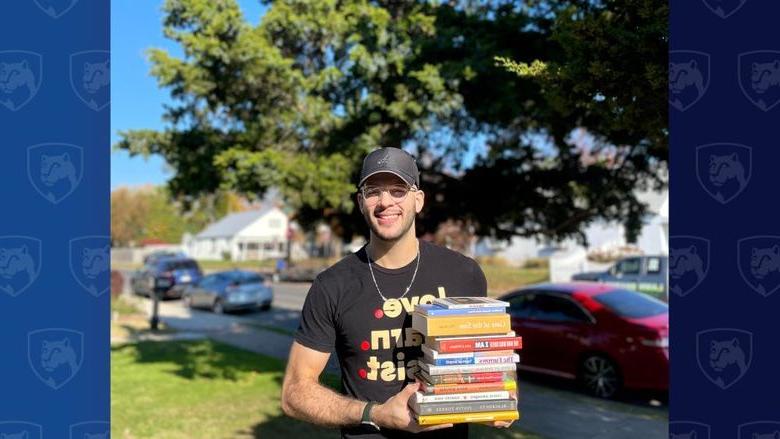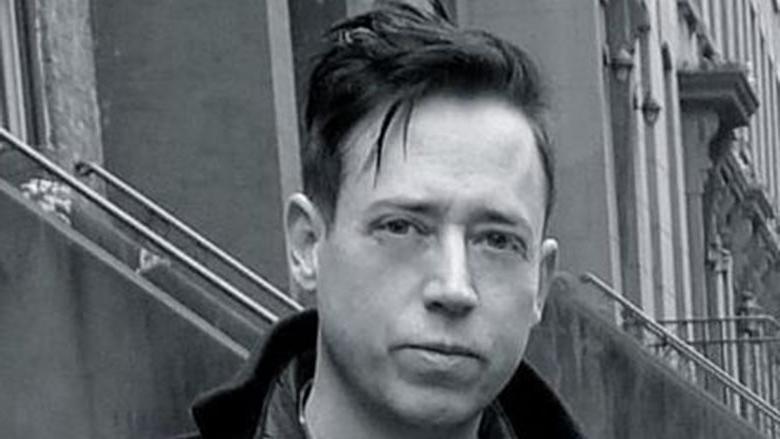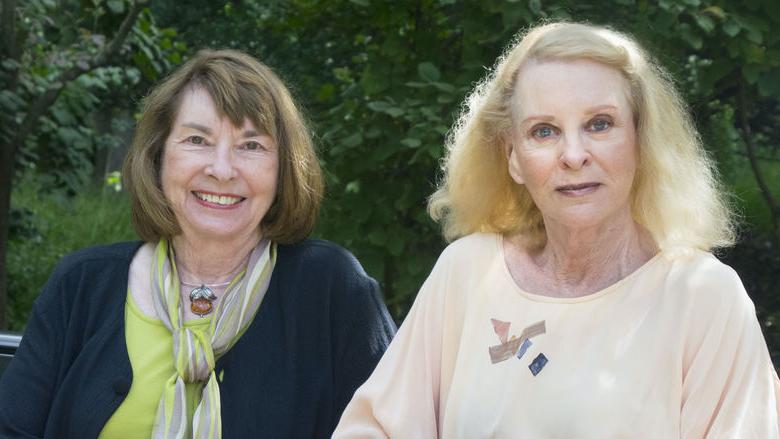Spring 2023 Course Descriptions
English Program and Writing Program
Penn State Abington
ENGLISH MAJOR REQUIREMENTS:
Traditions of Innovation
- ENGL 200 or 201:
- Medieval through Sixteenth Century:
- Sixteenth Century through Eighteenth Century: ENGL 455
- The Nineteenth Century:
- Twentieth Century to the Present: ENGL 401
- Literature, Writing, or Rhetoric: ENGL 050, ENGL 182A, ENGL 211, ENGL 215, ENGL 401, ENGL 415, ENGL 420, ENGL 455, ENGL 474, ENGL 497
- Diversity: ENGL 474
- Senior Seminar: ENGL 487W
Writing and Literature in Context
- ENGL 200 or 201:
- Pre-1800: ENGL 455
- Post-1800: ENGL 401
- Literature, Writing, or Rhetoric: ENGL 050, ENGL 182A, ENGL 211, ENGL 215, ENGL 401, ENGL 415, ENGL 420, ENGL 455, ENGL 474, ENGL 497
- Diversity: ENGL 474
- Senior Seminar: ENGL 487W
WRITING MINOR COURSES: ENGL 050. Note that ENGL 004 and GWS courses do not count toward the Minor.
ENGLISH MINOR COURSES: All ENGL courses listed here count toward the English Minor. Note that ENGL 004 and GWS courses do not count toward the Minor.
ENGL 050: Introduction to Creative Writing (GA)
Professor Heise
Want to write, but aren’t quite sure how to get started or what to write about? This course is meant to ignite your interests, hone your skills, and introduce you to the foundational elements of poetry, fiction, and creative nonfiction so as to set free your imagination. You will learn to craft images, music, lines, and narrative in the poetry we practice. In fiction, you will learn how to create characters, develop themes, modulate tone and atmosphere, plot a conflict, and manipulate setting. And you will learn to translate and reconstruct personal experience, memory, and research into arguments, scenes, and narratives for creative nonfiction. Along the way, our conversations will turn to the writing and revision process, to why one writes in the first place, and to age-old inexhaustible questions, such as, what are the functions and purposes of poetry, short story, and the essay, what is the difference between truth and fact, and what are the ethics of writing about our own lives and the lives of others. In this course, you’re a writer. And that means you will be writing all the time in an exercise of imagination and perseverance. ENGL 050 welcomes all students interested in creative writing: no previous creative-writing experience is necessary.
ENGL 182A: Literature in Empire – Embedded Study Course in Ghana
Professor Walters
This spring break study abroad to Ghana will allow students to apply and compare what they’ve learned in class with their in-person experience of Ghanaian culture through workshops, lectures, excursions. As the first sub-Saharan African country to regain its independence from colonization by the British, Ghana is an important country to study and visit when exploring post-colonial literary traditions.
With Ghana's rich social and cultural traditions, we will immerse ourselves in the complicated questions of gender, ethnicity, and nationality that arise in the imperial context and see how authors from these former British colonies set about defining personal and national senses of self in the wake of the empire.
On this faculty-led program, you will see and learn about Ghanaian culture with trips to historical sites such as the UNESCO Cape Coast Castle and visits to local markets, the capital Accra, the Kwame Nkrumah Mausoleum, and the W.E.B. Dubois Center for PanAfrican Culture. Unique to this program, we will have the opportunity to develop relationships with members of a rural village through a community service learning partnership with a school.
ENGL 211: Introduction to Writing Studies
Professor Cohen
Have you ever thought about how people learn to write? What makes the process of writing anything--from a grocery list to a novel--more effective? Understanding how writing is produced will help you build a writing process you can rely on whether you’re working on a poem or a lab report. In English 211, we will work together as a class to answer two key questions: how do people write and what does writing do in the world. In other words, we will be interrogating research in the field of Writing Studies to better understand the production of texts and the ways that their production is always a social act. By the end of the course, you will understand the foundations of Writing Studies as a discipline–and you will have examined and improved your own writing process along the way.
ENGL 215: Introduction to Article Writing
Professor Cohen
Share your perspectives on campus and community issues! In this course, you will research, compose, edit, and publish articles for our digital news outlet The Abington Sun.
Students in ENGL 215 will be expected to conduct primary research--conducting interviews and analyzing data, in order to generate ideas for stories of interest to our campus community. Students will pitch their story ideas weekly to an audience of their peers, and decide collectively with editors which stories will move forward.
Over the course of the semester, each student should plan to produce and publish several news articles and feature pieces, improving writing skills in a hands-on process as they work to publish well-researched, impactful articles. Subjects for articles range from politics to current events, sports and arts and culture. Feel free to browse past topics at The Abington Sun.
If you like to write, are interested in learning and writing about current events, and want to see your work published, ENGL 215/415 is the place for you! If you haven’t worked with us before, you should enroll in ENGL 215. If you’re a veteran of our writing staff who wants to further hone your skills, you should register for ENGL 415.
ENGL 401: Studies in Genre / American Crime Fiction
Professor Heise
This course is designed to introduce you to American crime fiction of the twentieth and early twenty-first centuries. Far from merely an escapist literature, crime fiction offers a complex response to the difficult, contradictory experience of modernity. It is a literature of profound moral ambiguity. And it is a genre that is as deeply political as it is entertaining and disturbing. The course will map this popular genre from the 1920s to the end of the century and beyond by attending to its diversity, by situating the literature within historical context, and by anatomizing how it represents ideological conflicts over crime, justice, inequality, and city life. As we make our way through the semester, we will discuss issues that this literature dramatizes, such as, the representation of alienation, anonymity, and the metropolis; the violence of American individualism; the policing of working-class and ethnic culture; and crime fiction’s cultural politics and its challenge to ‘high’ and ‘low’ cultural demarcations. In addition to the primary literature, the course will engage theoretical and historical texts, which will aid in framing the genre within ongoing debates over its origins, its politics, its literary status, and its audience.
ENGL 415: Introduction to Article Writing
Professor Cohen
Share your perspectives on campus and community issues! In this course, you will research, compose, edit, and publish articles for our digital news outlet The Abington Sun.
Students in ENGL 415 will build on the skills they learned in ENGL 215 to conduct primary research--conducting interviews and analyzing data, in order to generate ideas for stories of interest to our campus community. Students will pitch their story ideas weekly to an audience of their peers, and decide collectively with editors which stories will move forward.
Over the course of the semester, each student should plan to produce and publish several news articles and feature pieces, improving writing skills in a hands-on process as they work to publish well-researched, impactful articles. Subjects for articles range from politics to current events, sports and arts and culture. Feel free to browse past topics at The Abington Sun.
If you like to write, are interested in learning and writing about current events, and want to see your work published, ENGL 215/415 is the place for you! If you haven’t worked with us before, you should enroll in ENGL 215. If you’re a veteran of our writing staff who wants to further hone your skills, you should register for ENGL 415.
ENGL 420: Writing for the Web
Professor Cohen
Social media has become central to our collective lives. Digital technologies enable messages composed by anyone anywhere in the world to spread further and faster than ever before. Writing has always been social, but technologies continue to create new avenues for meaning-making and new ways to build credibility, shape relationships, and make arguments. How do social media items get produced? How do you know which messages to trust? This course will help you think through the social and ethical implications of web-assisted communication as you discuss, research, plan, and carry out digital projects that address issues in your community. Over the course of the semester, we will investigate how writing on the web affords opportunities to convey ideas and arguments in visual, aural, spatial, and gestural modes, and in turn, how communication in those modes shapes credibility and relationships.
ENGL 455: Topics in British Literature
Professor Rigilano
This course will explore the concept and genre of Utopia in British literature, from the early modern period to the end of 18th century. We tend to think of Utopia as a frictionless paradise, but from its inception the idea of a perfect place was riven by paradox. Utopian literature takes up the contradictions of collective life and foregrounds the political and social process of working through them. Moreover, the idea of Utopia is not static or eternal: every historical moment imagines Utopia anew. The core primary texts in this course will include Thomas More’s Utopia (1516), Daniel Defoe’s Robinson Crusoe (1719), Jonathan Swift’s Gulliver’s Travels (1726), Samuel Johnson’s Rasselas (1759), and Louis-Sébastien Mercier’s Memoirs of the Year Two Thousand Five Hundred (1772). We will also consider a variety of other historical texts and contemporary theoretical considerations of the genre.
ENGL 474: Special Topics in Rhetoric and Composition (Rhetorics of Health and Ability)
Professor Cohen
Rhetorics of Health and Ability will provide an introduction to the ways scholars talk about representations of health, illness, and dis/ability, as well as discussion of the work that those representations do in our culture. My aim for the course is that we are all better able to recognize and interpret how stories that center health and ability circulate and shape our awareness and expectations of ourselves and the people around us. To that end, we will be reading some scholarly work in the fields of both Rhetoric and Disability Studies as well as reading and viewing representations of illness and disability in popular media.
Class discussion will necessarily include difficult topics, including stigma, illness, and mortality. Though some of these discussions are potentially unpleasant, part of the work of the course will be to understand how the stories we encounter shape our thoughts and feelings on these topics.
ENGL 487W: Senior Seminar / American Crime Fiction
Professor Heise
This course is designed to introduce you to American crime fiction of the twentieth and early twenty-first centuries. Far from merely an escapist literature, crime fiction offers a complex response to the difficult, contradictory experience of modernity. It is a literature of profound moral ambiguity. And it is a genre that is as deeply political as it is entertaining and disturbing. The course will map this popular genre from the 1920s to the end of the century and beyond by attending to its diversity, by situating the literature within historical context, and by anatomizing how it represents ideological conflicts over crime, justice, inequality, and city life. As we make our way through the semester, we will discuss issues that this literature dramatizes, such as, the representation of alienation, anonymity, and the metropolis; the violence of American individualism; the policing of working-class and ethnic culture; and crime fiction’s cultural politics and its challenge to ‘high’ and ‘low’ cultural demarcations. In addition to the primary literature, the course will engage theoretical and historical texts, which will aid in framing the genre within ongoing debates over its origins, its politics, its literary status, and its audience. Note that ENGL 487 will have different writing expectations from ENGL 401 in keeping with the demands of the senior seminar.
ENGL. 497: Special Topics—Travel Writing
Jimmy J. Pack Jr.
The best travel writing doesn't tell a reader how “great” a place is. It tells the truth about a place and its people through your own experiences and observations. Travel writing is a nonfiction narrative that emphasizes culture, setting, and personal experience. As in fiction, a solid narrative arc, details that evoke the senses, and character development are crucial for a successful travel piece. Our class will explore all forms of travel writing: blogging, creating social media posts, and essay form. We’ll discuss the place of a “conflict” in travel writing as well, and students will produce publishable work that we will send out for publication. We’ll start class by reading a sampling of diverse travel writers who have explored the world and our own nation, which will act as a guide to your own creative writing.





